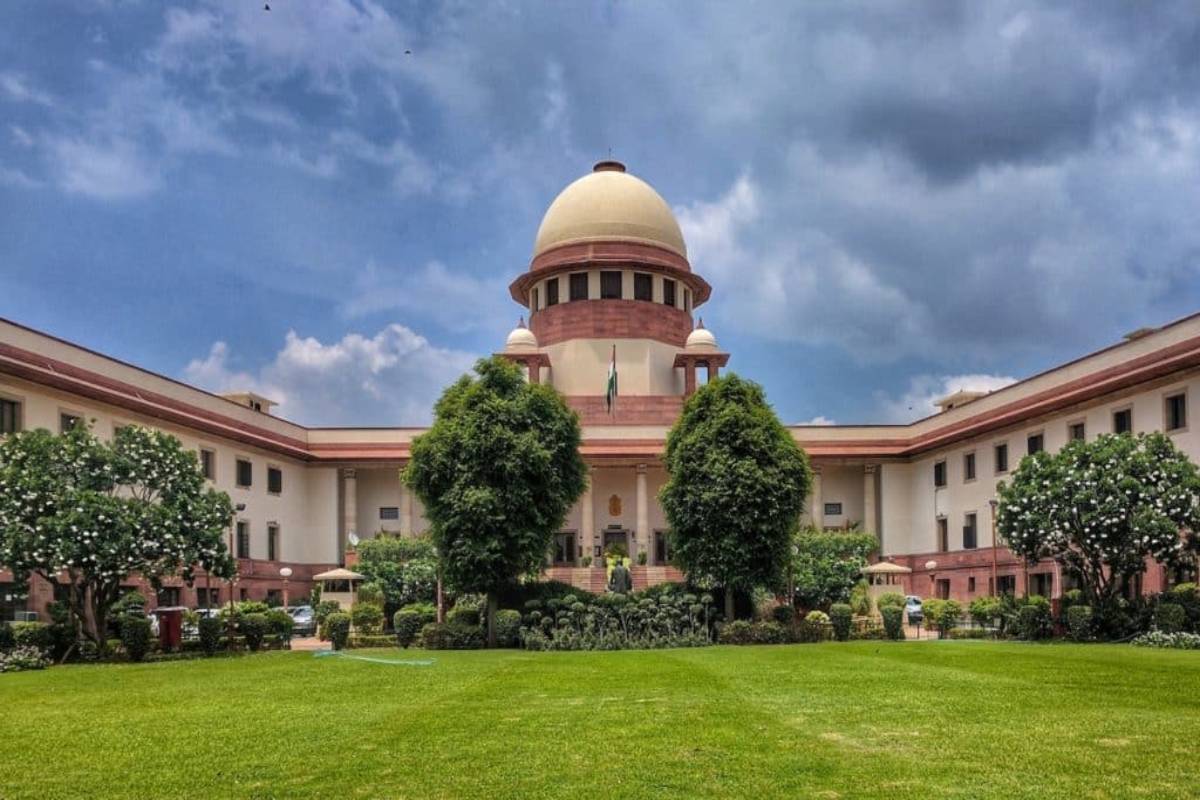Delhi poll process concludes with ECI submitting list of winning candidates to LG
The poll panel submitted a list of newly-elected candidates to Lieutenant Governor Vinai Kumar Saxena.
Besides the Central government, the court asked ECI to submit its reply on the plea by a PIL petitioner advocate Ashwini Kumar Upadhyay.

Supreme Court [File Photo]
The Supreme Court on Monday sought response from the Central government and the Election Commission of India (ECI) to a 2016 public interest plea challenging the constitutional validity of Sections 8 and 9 of the Representation of the Peoples Act, 1951, while seeking to debar the convicted lawmakers – both in the parliament and the state legislatures – from contesting elections for life.
As the law stands today a lawmaker loses his membership of Parliament or the state legislature after his conviction and continues to remain disqualified from contesting elections for six years from the date of completion of sentence.
Advertisement
The notice on the PIL was issued way back on September 14, 2016.
Advertisement
A bench of Justice Dipankar Datta and Justice Manmohan asked the Central government to file its reply affidavit failing which the court could proceed to decide the matter without government response. Besides the Central government, the court asked ECI to submit its reply on the plea by a PIL petitioner advocate Ashwini Kumar Upadhyay.
The bench also requested the Attorney General R Venkataramani to assist the court in the hearing of the matter.
Section 8 of the Representation of Peoples Act, 1951, provides for the unseating and disqualification of a sitting lawmaker on conviction under the provisions of the Indian Penal Code, the Protection of Civil Rights Act, 1955, which provides for punishment for the preaching and practice of “untouchability”, and other statutes.
Section 9 of the Act provides for the disqualification of a person dismissed from government service for corruption or disloyalty to the state, for a period of five years after the date of dismissal.
On the plea for the expeditious disposal of criminal cases against lawmakers, the bench said it would be inappropriate for a two-judge bench to reopen the issue, given that a three-judge bench had already delivered a judgment on the issue on November 9, 2023.
However, the bench directed its registry to place the issue of the expeditious disposal of criminal cases against the lawmakers before the Chief Justice of India for consideration by a larger bench.
Posting the matter for hearing after three weeks, which is tentatively listed for hearing on March 4 (computer generated), the bench, however, said it would decide the issue concerning the lifetime disqualification of convicted politicians from contesting election.
The top court was hearing the PIL filed by advocate Ashwini Upadhyay seeking life-long disqualification of a convicted MPs, and MLAs, along with a plea for a one-year timeline for deciding criminal cases against the government members.
During the hearing, senior advocate Vijay Hansaria, – assisting the court as amicus curiae – highlighted major roadblocks, including special MP/MLA courts handling other matters, excessive adjournments, and lack of strict procedural enforcement.
Senior advocate Vikas Singh, representing the PIL petitioner, asked the bench to address the issue of no re-entry of convicted persons into politics.
Senior advocate Vikas Singh told the bench that allowing those convicted of heinous crimes to return after a short sentence defeats democratic integrity. Singh criticised the political parties for repeatedly fielding candidates with criminal records.
The senior advocate said, “Our democracy has matured over 75 years, yet 46-48 per cent of elected representatives have serious charges, including rape and murder. Parliament could not have intended such individuals to govern”.
Advertisement